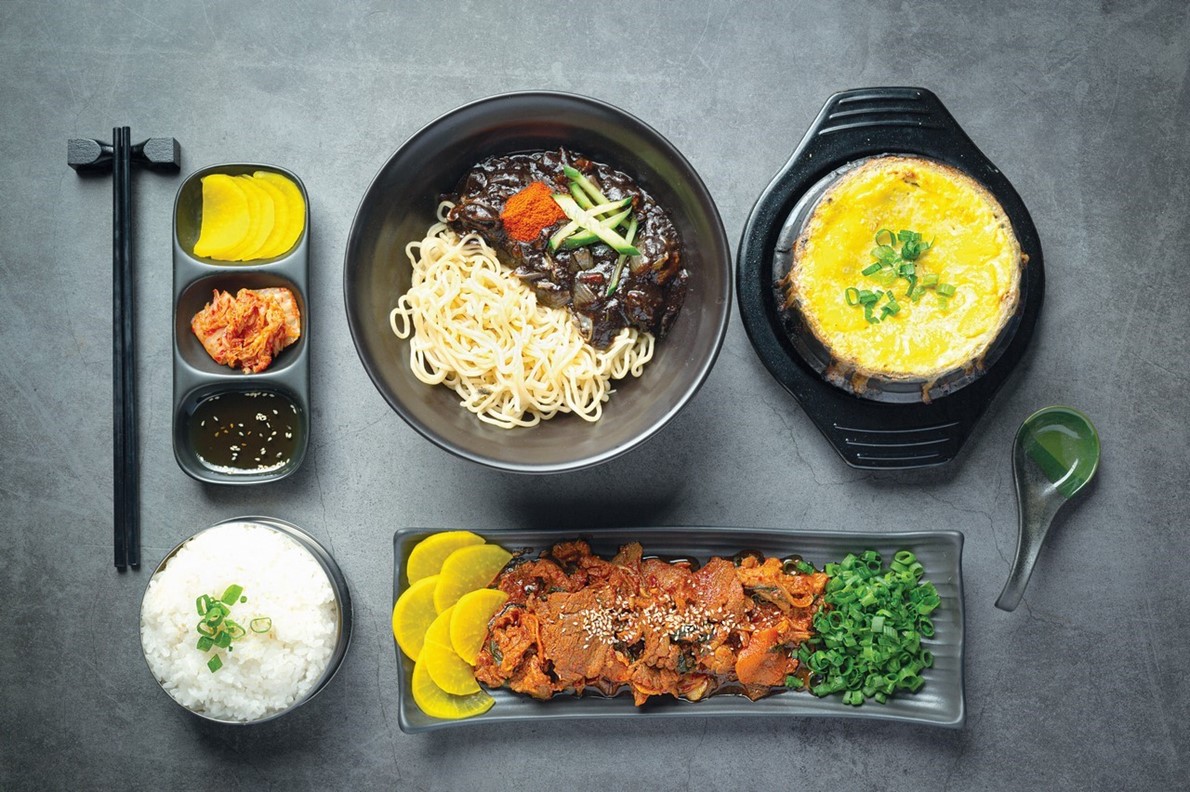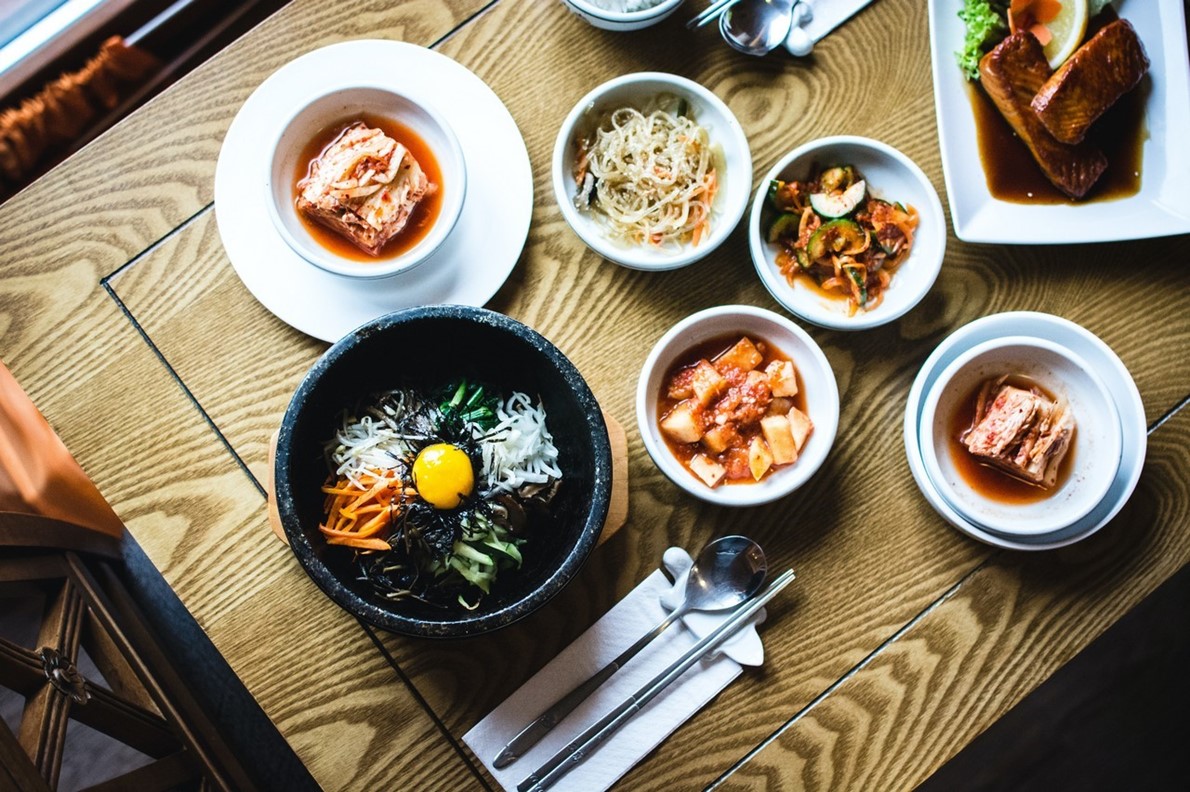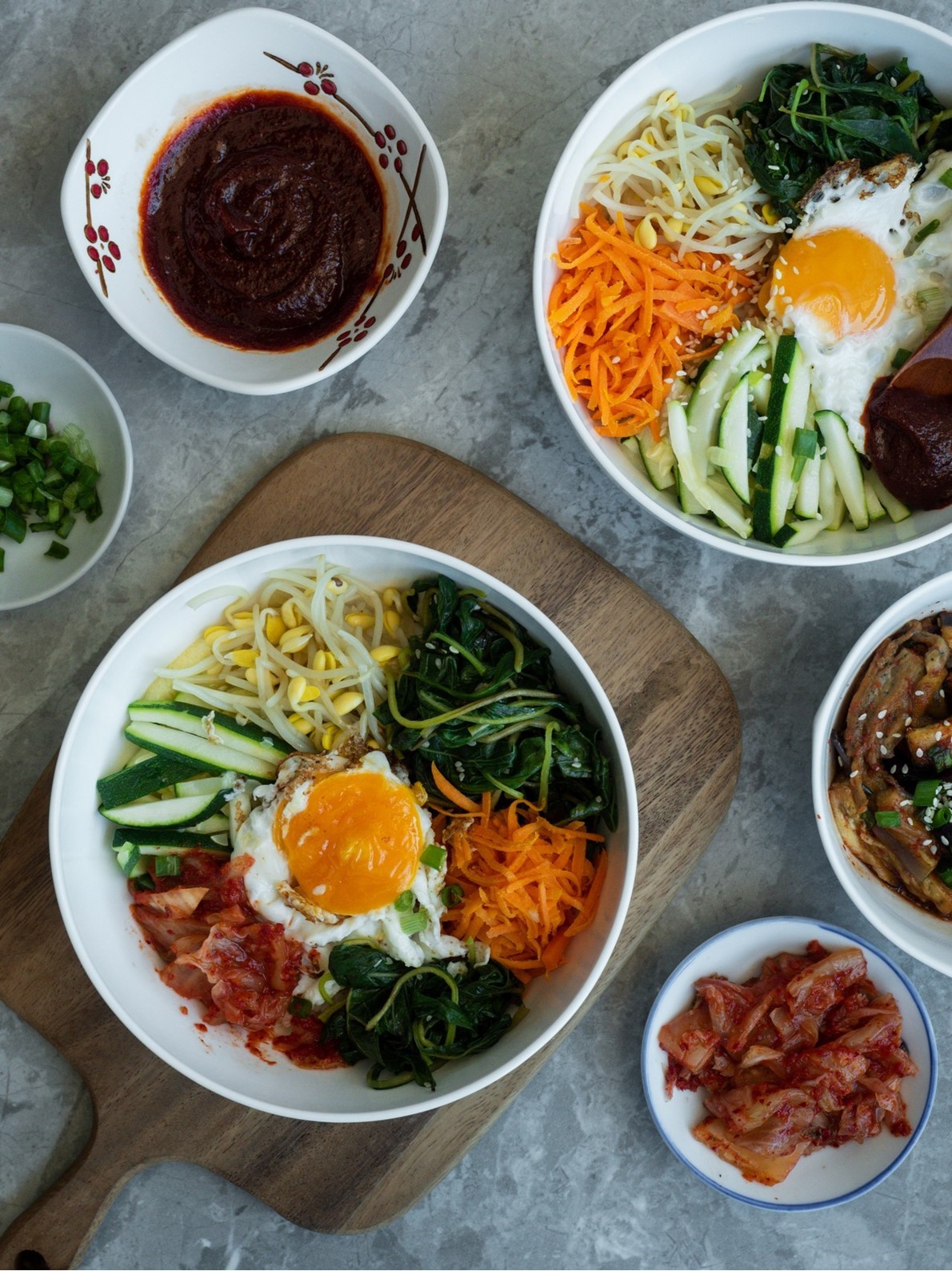For the past decade,
especially now after the COVID-19 pandemic, people are searching for
healthier food options that boost their immune system. On top of that, they are looking
for food that can bring them together with friends and family.
اضافة اعلان
In the aftermath
of the pandemic and experiencing how lonely life can get with social
distancing, Korean cuisine offers a socially oriented cuisine bursting with
flavors and spices. It is rich with everything from vegetables and fish to red
meat and white rice. Served in big bowls with a number of side dishes, Korean
cuisine is food meant to be shared. The food embodies the lifestyle and
traditions of Koreans in the past, and that is exactly what people are looking
for these days.
Korean food is
now largely introduced to the world through the Korean Wave (Hallyu), especially
through K-dramas and K-pop, which are more popular than ever. Korean cuisine is
sparking global curiosity.
Korean food is
considered one of the healthiest cuisines in the world, and there is a famous
saying that Koreans swear by: “food is medicine”. The idea has been reflected
in Korean cuisine for years, especially in dishes like
kimchi, Korea’s famous
fermented seasoned cabbage and radish.

Kimchi has
hundreds of varieties and it has been proven to reduce the risk of serious
health conditions such as stroke, cancer, and diabetes. It features in every
Korean meal, as does seafood, which was one of the main sources of food for
Koreans in the past. Given Korea is surrounded by water, seafood — cooked or
raw — is one of the bases of Korean cuisine. Add to that the wide variety of
sauces and rich seasonings that are good for the immune system, heart, and a
human’s overall health, and you start seeing why Korean food is viewed as
medicine.
Korean food
reflects the rich culture and traditions cherished by Koreans and reflects how
they overcame various historical events — traditions that have continued to the
modern day.
Bap (steamed
white rice) is at the heart of almost every Korean meal and is a huge part of
Koreans’ everyday lives; so much so that Koreans usually greet each other by
asking whether or not they ate bap. Koreans love sharing food and treat each
other with or to meals. This is reflected in the corporate culture, which often
features work dinners and lunches deemed essential to bringing colleges and
their bosses together.
The ideal Korean
meal would arguably consist of white rice, kuk (soup), banchan (side dishes) —
which can vary from a couple to a dozen — kimchi, and jang (sauce), with all of
these seasoned mainly with garlic, chili, onions, ginger, and more.

Some of the most
famous Korean dishes are bibimbap, bulgogi, japchae, gimbap, samgyeopsal, and
jajangmyeon.
Korean food has
gone global and in Jordan. A large number of Instagram and other social media
pages which offer Korean food and snacks that are going viral, as the number of
people excited by and exploring it is growing rapidly.
With the
increasing popularity of Korean food, snacks, and ingredients, they are now
found in a number of Jordanian supermarkets. Furthermore, the Korean Food Week
2022, organized by the Korea Trade Center, is hoping to expand its popularity
in Jordan further. The event will offer people the opportunity to try new food.
The ideal Korean meal would arguably consist of white rice, kuk (soup), banchan (side dishes) ... kimchi, and jang (sauce), with all of these seasoned mainly with garlic, chili, onions, ginger, and more.
From September
22–24, a food tasting event will be held at Cozmo from 11am to 2pm, allowing
people to try iconic Korean snacks such as tteokbokki (simmered rice cake) and
Korean dumplings, which will be made by a specialized chef.
The event will be
organized again at Carrefour from October 13–15.
Korean cultural
events, particularly those focused on food, are not limited to the food week.
As Jordan and Korea celebrate 60 years of diplomatic ties, the South Korean
embassy in Jordan is collaborating with Jordan K-pop Lovers and Mashaheer Kpop
to organize a Korean food video contest.
The pre-application
period stared on September 5 and will end on September 14. The video submission
period runs from September 22 to October 8.

Those who want to
participate should submit a video of themselves buying Korean ingredients, then
cooking, eating, and reviewing the dish in a 10 minutes video sent to the South
Korean embassy’s email. The organizers note that submitting a video of making
instant noodles would not be accepted, and suggested that dishes like gochujang
tteokbokki, gimbap, kimchi fried rice, or dak-galbi would be perfect examples.
The submitted
video clips will be uploaded on the embassy’s official YouTube channel on
October 9, and the submitted clips will be evaluated based on the number of
views.
An award ceremony
will be held for outstanding participants at the embassy on October 17, and the
top three creators will win a JD100 voucher to Cozmo/Carrefour.
Read more Good Food
Jordan News



